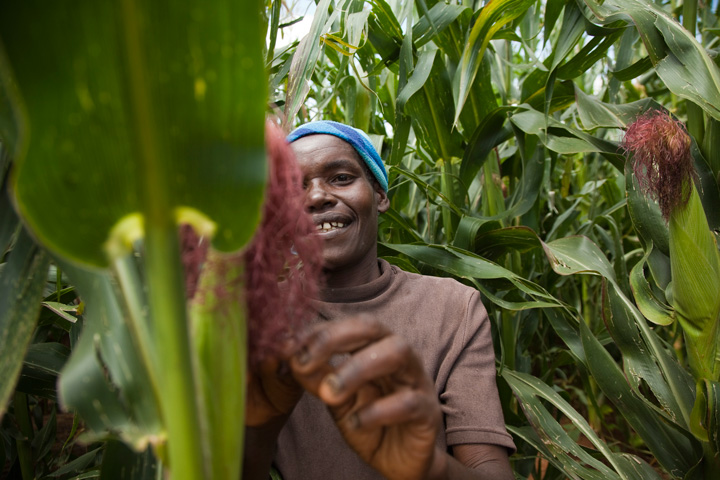An estimated two million people suffer from hunger in Zimbabwe. We now have around 5,500 patients, and several hundred of them are dependent on food aid. We want to support these people by means of a maize farming project, aimed at enabling the patients to feed themselves and their families independently. Specifically, we want to work together with a local partner to train and equip 270 families in communities around Harare. Financing will be covered by earmarked donations from Switzerland.
Training underway
In an initial phase, 150 families will receive training over several months, and will be given the necessary seeds and simple agricultural equipment to help them get started. They will also be taught efficient, conservation farming techniques. All in all, the project will allow us to help some 1,300 people, who will then be able to pass on the knowledge they have gained to their neighbours.
The first workshop was held in mid-May. The fields will be prepared in June and the crops sown in October, with the initial maize harvest likely to come in March 2016. Should there be any surplus, the families will be able to sell this and use the proceeds to finance everyday living as well as their children’s school fees.
Food aid to be continued
A family of five needs around 250m2 of arable land to be able to feed itself. Needy patients who do not own enough land will continue to receive basic food aid financed by the UN’s World Food Programme, the vitamin-rich porridge e’Pap, or milk powder sponsored by the Swiss Agency for Development and Cooperation (SDC).

